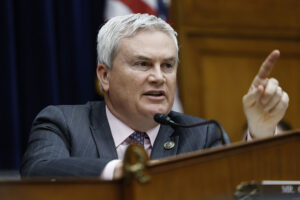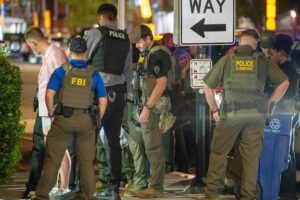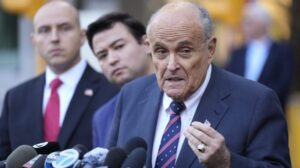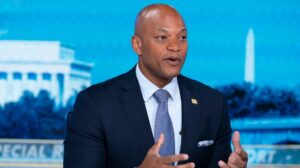The Dictatorship
Grand jury rejects yet another felony indictment in Trump’s D.C. crackdown
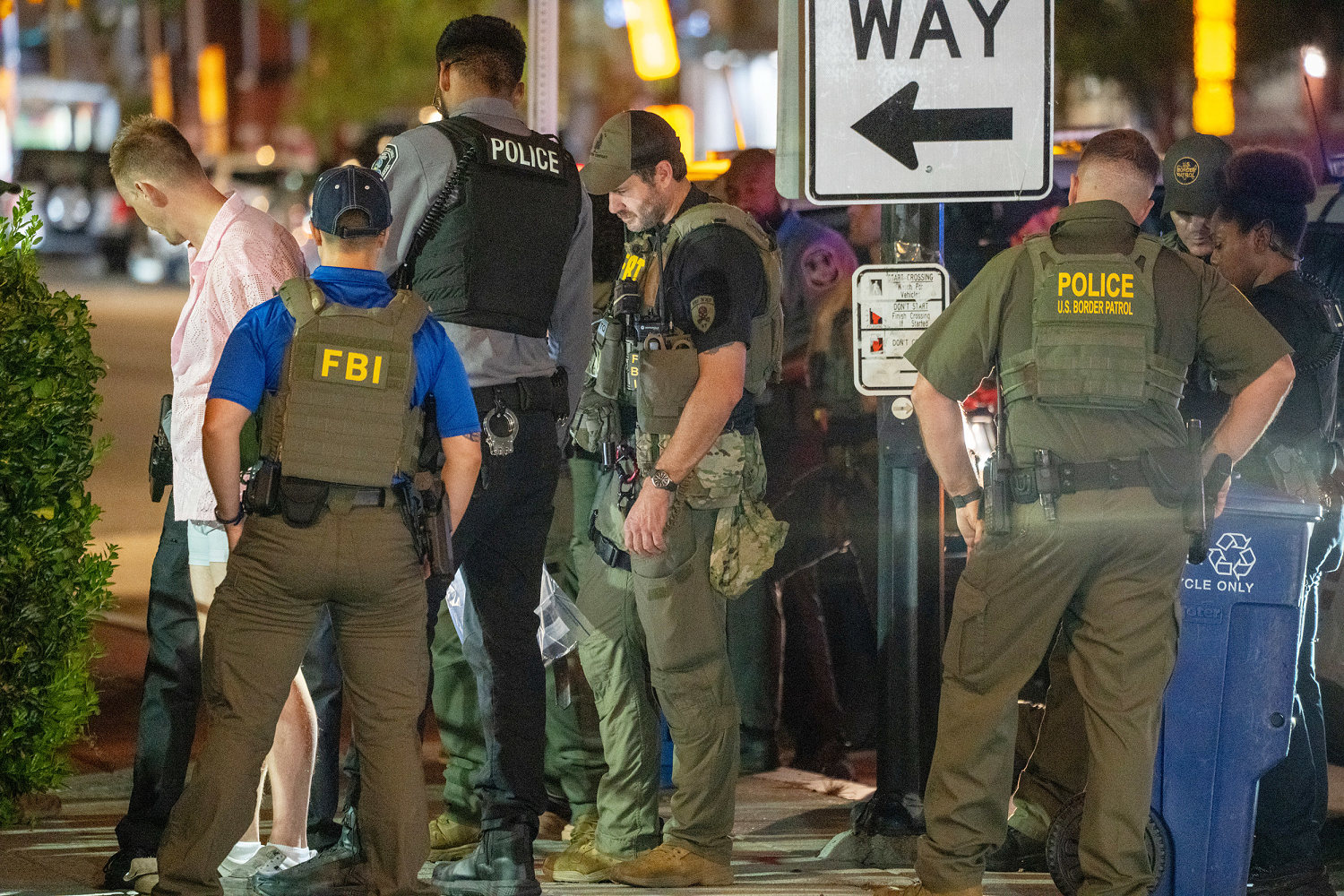
We have yet another data point in what is either a revolution underway in the Washington grand jury, a revolutionarily poor job being done by Washington prosecutors, some combination of the twoor some still-unknown phenomenon unfolding amid the Trump administration’s crackdown in the nation’s capital.
Whatever is happening, it’s not normal. That’s true of much else these days, but this latest stark chapter goes to the heart of the justice system. While it’s well understood that trial juries wield significant power, grand juries can shape, curb or kill cases at their inception. Most cases easily move past the grand jury stage. But grand jurors in D.C. aren’t acting as a rubber stamp.
We already knew about the whopping triple failure to indict Sidney Reid, as well as the failure to do the same against sandwich thrower Sean Dunn. Both cases are proceeding as misdemeanors instead of felonies after grand juries rejected more serious charges of assaulting law enforcement.
Now, grand jurors have declined to approve another indictment in a case charged under that same assault statute. This one involves Alvin Summerswhose case prosecutors actually moved to dismiss (though “without prejudice,” meaning they could try again later, a distinction that dominated the saga surrounding New York City Mayor Eric Adams). Seeking a permanent dismissal on Thursday, Summers’ lawyers wrote that the officer’s testimony “was rejected by the grand jury, presumably after reviewing the body-worn camera video.”
Grand jury deliberations are secret, so we don’t know the precise rationale that led to the rejections in any of these cases. But it’s quite rare for grand jurors to refuse to indict any case, let alone three in quick succession or three times in the same case.
That previously led me to wonderin examining the Reid and Dunn cases, whether grand jurors simply thought prosecutors couldn’t satisfy the relatively low evidentiary burden at this preliminary stage of a case, or whether grand jurors were making more profound statements of nullification, the latter referring to situations in which jurors believe prosecutors have proved their cases but nonetheless reject them because they find the prosecutions or what they represent offensive.
The implications of either scenario are striking. And remember, this is just what we know about what has happened so far. This incredible story is still being written, but it’s one that can’t be ignored amid everything else that’s abnormal in these times.
Subscribe to the Deadline: Legal Newsletter for expert analysis on the top legal stories of the week, including updates from the Supreme Court and developments in the Trump administration’s legal cases.
Jordan Rubin is the Deadline: Legal Blog writer. He was a prosecutor for the New York County District Attorney’s Office in Manhattan and is the author of “Bizarro,” a book about the secret war on synthetic drugs. Before he joined BLN, he was a legal reporter for Bloomberg Law.
The Dictatorship
Trump’s Cabinet meeting profanity highlighted a harsh truth about his Putin failures

Just over a month ago, President Donald Trump appeared to finally grasp what pretty much every other leader of the free world has long known: that Russian President Vladimir Putin is untrustworthy. Speaking to reporters during a Cabinet meeting in July, Trump said“We get a lot of bull—- thrown at us by Putin, if you want to know the truth. He’s very nice to us all the time, but it turns out to be meaningless.”
Trump used almost exactly the same profanity to describe his frustration with the lack of progress toward peace in another Cabinet meeting last week. “It doesn’t matter what they say,” Trump responded when presented with claims that Russia would not agree to a peace deal as long as Volodymyr Zelenskyy remains president of Ukraine. “Everybody’s posturing. It’s all bull—-, OK?”
Just over a month ago, President Donald Trump appeared to finally grasp what pretty much every other leader of the free world has long known.
This full-circle moment, however, further underscores the disappointing results of Trump’s Putin summit in Alaska. In the press conference afterward, Trump claimed the pair had “really made some great progress today” in “an extremely productive meeting.” In the president’s own wordsit was “a great and very successful day in Alaska.”
Within a week of this apparently “great progress,” Russia launched over 700 drones and 40 missiles into Ukraine, one of which struck an American-owned electronics plant. And on Wednesday night, it carried out yet another massive attack — its second-largest aerial assault on Ukraine since its invasion in 2022 — which killed at least 23 people, including four children, and damaged European Union and British Council buildings in Kyiv.
Russia’s continued acts of aggression do indeed back up the president’s assertion that the Kremlin and its representatives cannot be taken at their word. But the Russian assaults have revealed Trump’s claims of a “successful” meeting with Putin to be just as hollow.
Surrounded by his Cabinet, even Trump struggled to hide his frustration. “Every conversation I have with him is a good conversation,” he said. “And then unfortunately, a bomb is loaded up into Kyiv or someplace, and then I get very angry about it.”
But frustration is not nearly enough. This strategy of simply recycling the same expressions of anger remains woefully ineffective in the face of Putin’s attacks and duplicity. Now might be a good time for any of the officials who flanked Trump on Monday, or who participated in his Cabinet meeting on Tuesday, to remind their boss that merely voicing outrage about Putin’s actions does nothing to actually stop them.
We know this because we’ve seen it all before.
In March, Trump said that he was “very angry” and “pissed off” about Putin’s criticisms of Zelenskyy. In April, he pleaded “Vladimir, STOP!” on Truth Social. In May, just six days after posting that he had spoken with Putin over the phone and that he believed “it went very well,” Trump reversed course, complaining that the Russian president had “gone absolutely CRAZY!” and telling reporters that he’s “killing people, and I don’t like it at all.”
This strategy of simply recycling the same expressions of anger remains woefully ineffective.
Indeed, in the months since Trump returned to the White House, Moscow has more than doubled the number of drones and missiles fired toward Ukraine compared to the final six months of Joe Biden’s presidency. That Russian forces have made sizable gains in Ukrainian territory this summer will only further complicate any potential peace talks between the two nations, or whatever “negotiation” Vice President JD Vance continues to insist is necessary to bring an end to this conflict.
Ultimately, Trump’s 180-degree turn on Putin represents not only his fizzling attempts to bring an end to this conflict (he is more than 200 days into his pledge to end the war in 24 hours — and counting), but also more broadly the consequences of his failure to appropriately handle his executive powers. Over the course of his second term, Trump has reversed course on multiple issues including tariffs, the release of the Epstein files and whom ICE should be targeting in immigration raids.
All too often, the one person who most clearly highlights Donald Trump’s presidential weaknesses is Donald Trump himself. However, one could say by now that his Russian counterpart is a close second.
Alexander Puri
Alexander Puri is the anchor producer for “The Last Word with Lawrence O’Donnell,” a role he began in December 2022. Prior to joining BLN, he worked the overnight shifts on the assignment desk at ABC News.
The Dictatorship
The truth about Trump’s D.C. takeover that he doesn’t want you to know
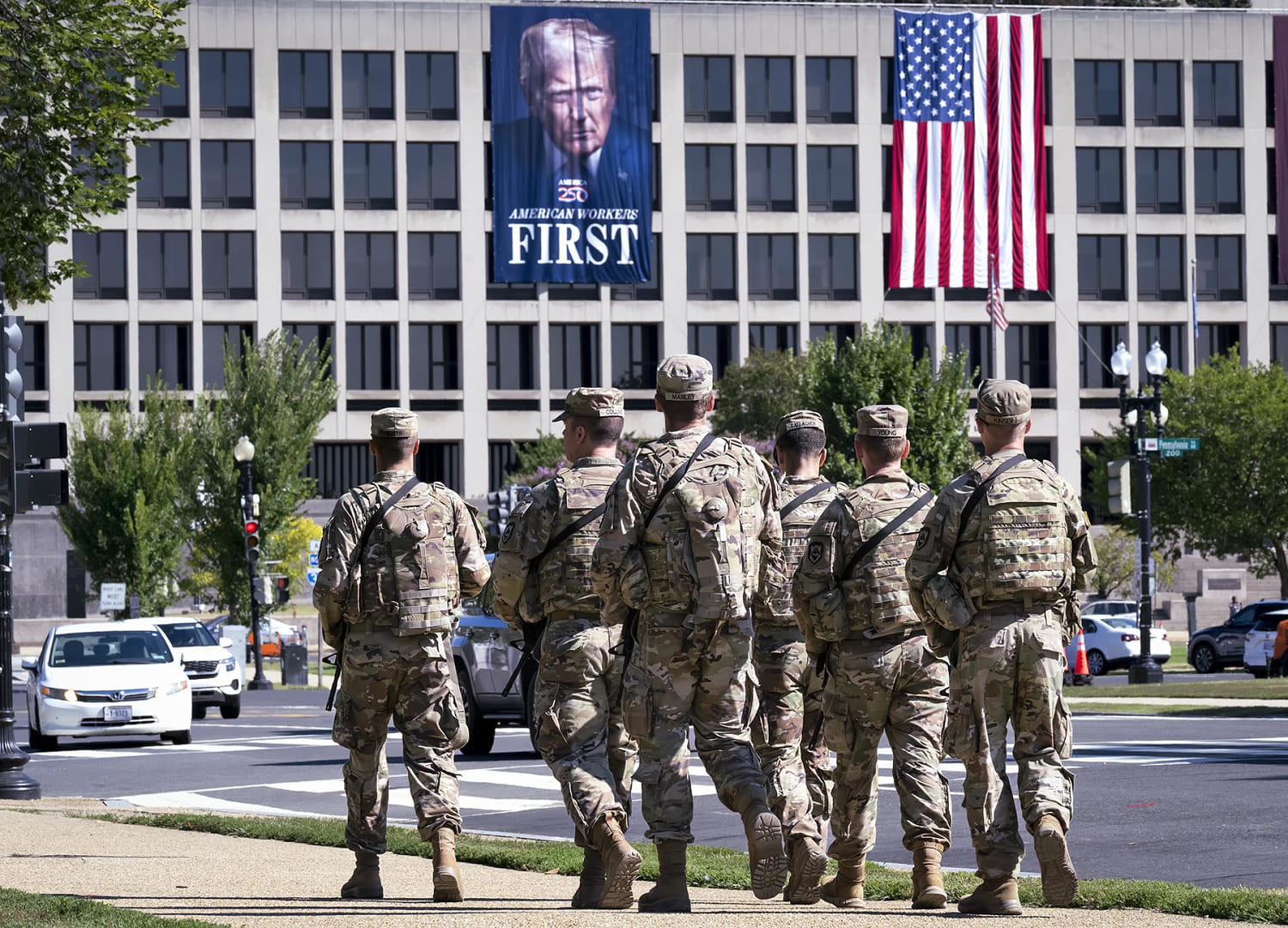
This week, I dropped my daughter off for her first day of preschool near my home in Washington, D.C.’s Petworth neighborhood. Outside the building’s entrance, the school’s family-teacher organization had set up a table to welcome new parents. On the table lay the usual suspects for such a gathering: coffee, doughnuts and contact information for the organization. Alongside them sat something else, though: a stack of small, red cards.
If you’re not an immigrant or a relative of an immigrant, you’re probably not familiar with the “red card.” Created by the Immigrant Legal Resource Centerone side lists the bearer’s constitutional rights in that person’s language of choice. The other side, in English, is designed to be shown to an immigration agent if the bearer is stopped, with statements like “I choose to exercise my constitutional rights.”
It is utterly twisted that equipping parents with tools to assert their basic rights would be necessary on such a momentous day. And yet, that is life during President Donald Trump’s takeover of Washington, D.C.
If you are an immigrant in our community, they are not questioning whether you are documented, whether you have papers.”
DC Council member Janese Lewis George
In asserting control over D.C.’s police department and deploying thousands of National Guard troops to the city’s streets, the White House has insisted that this intervention is “to rescue our nation’s capital from crime, bloodshed, bedlam and squalor and worse,” as Trump put it. “For the first time in their lives, [D.C. residents] can use the parks, they can walk on the streets,” said adviser Stephen Miller two weeks later.
To be clear, while crime in the city hit a 30-year low last year, residents still want safer streets. In a recent Washington Post poll, over 70% of Washingtonians said crime was a “moderately,” “very” or “extremely” serious problem. Yet nearly 80% opposed the takeover and troop deployment. As someone born in Washington and who has lived here my whole life, I have a simple explanation for that discrepancy: Pretty much anyone living in D.C. can see every day that the White House’s justification is a lie.
The National Guard units, for instance, have largely been deployed at tourist hubs like Union Station and the Washington Monument, but not where people actually live. During my own commute between Petworth, a residential neighborhood, and my workplace near the Capitol, only at the latter are National Guard members visible. Reports of troops acting as law enforcement are far rarer than videos of troops working on “beautification projects” — i.e., picking up trash. And at an estimated cost of $1 million per day, that’s an expensive garbage collection operation.
My neighborhood, meanwhile, is part of Ward 4, which has the largest Hispanic population of the city’s eight wards. The National Guard rarely makes its way up there, but, as the stack of red cards at my daughter’s school suggests, there is plenty of immigration enforcement. “If you are an immigrant in our community, they are not questioning whether you are documented, whether you have papers,” Janeese Lewis George, who represents Ward 4 on the D.C. Council, said recently. “They are literally going up to anyone in our neighborhoods and communities and taking them.”
As a result, reports Martin Austermuhle of the local news outlet The 51st“creeping suspicions that MPD officers are cooperating with the efforts are making residents think twice about calling local police to report crimes they’ve witnessed — or been victims of.” So much for public safety.
Whenever it does end, though, there’s only one way to prevent it from happening again: granting D.C. statehood.
In different parts of D.C., a number of other law enforcement agencies have a heavier presence. But a review of arrest data from The New York Times found that “the operation has been more of a sprawling dragnet than a targeted crime-fighting operation.”
“Officers from some of the nation’s most elite federal law enforcement agencies,” the Times reports, “are often conducting traffic stops, performing low-dollar buy-and-bust drug operations or checking to see whether someone is drinking liquor from an open container.” Meanwhile, local restaurants suffer and tourists shy away from the city — some scared away by the White House’s claims that crime is rampant, others unsettled by the deployments themselves.
To top everything off, while parents at my daughter’s school worry about dropping off their children, this same week a shooter killed two children at a school in Minneapolis. It was the 434th school shooting since the massacre at Columbine High School in 1999which surely qualifies as a public safety emergency no matter the criteria. Yet after every one of these shootings, the political right insists we can’t regulate the weapons that help monsters to mass-murder children. Because if we did, they say, what would stop the government from deploying troops in the streets?
And now that deployment has happened — and these very same people are applauding!
It’s not clear how this occupation — for that, in practice, is what it amounts to — ends. While Trump needs Congress to sign off on his takeover of the D.C. police, he can keep the National Guard here as long as he wants.
Whenever it does end, though, there’s only one way to prevent it from happening again: granting D.C. statehood.
Seven hundred thousand Americans live in the district, more than Vermont and Wyoming, and nearly as many as Alaska and South Dakota. Let the 700,000 decide how they wish to be policed. Let the 700,000 have a real say in how their tax dollars — more than $40 billion last year alone — are spent. Let the 700,000 have the same rights and autonomy that other Americans do. And don’t leave us as a plaything for a future president.
James Downie is a writer and editor for BLN Daily. He was an editor and columnist for The Washington Post and has also written for The New Republic and Foreign Policy.
The Dictatorship
I’m a Rabbi. Here is why my faith tells me the war in Gaza must end.
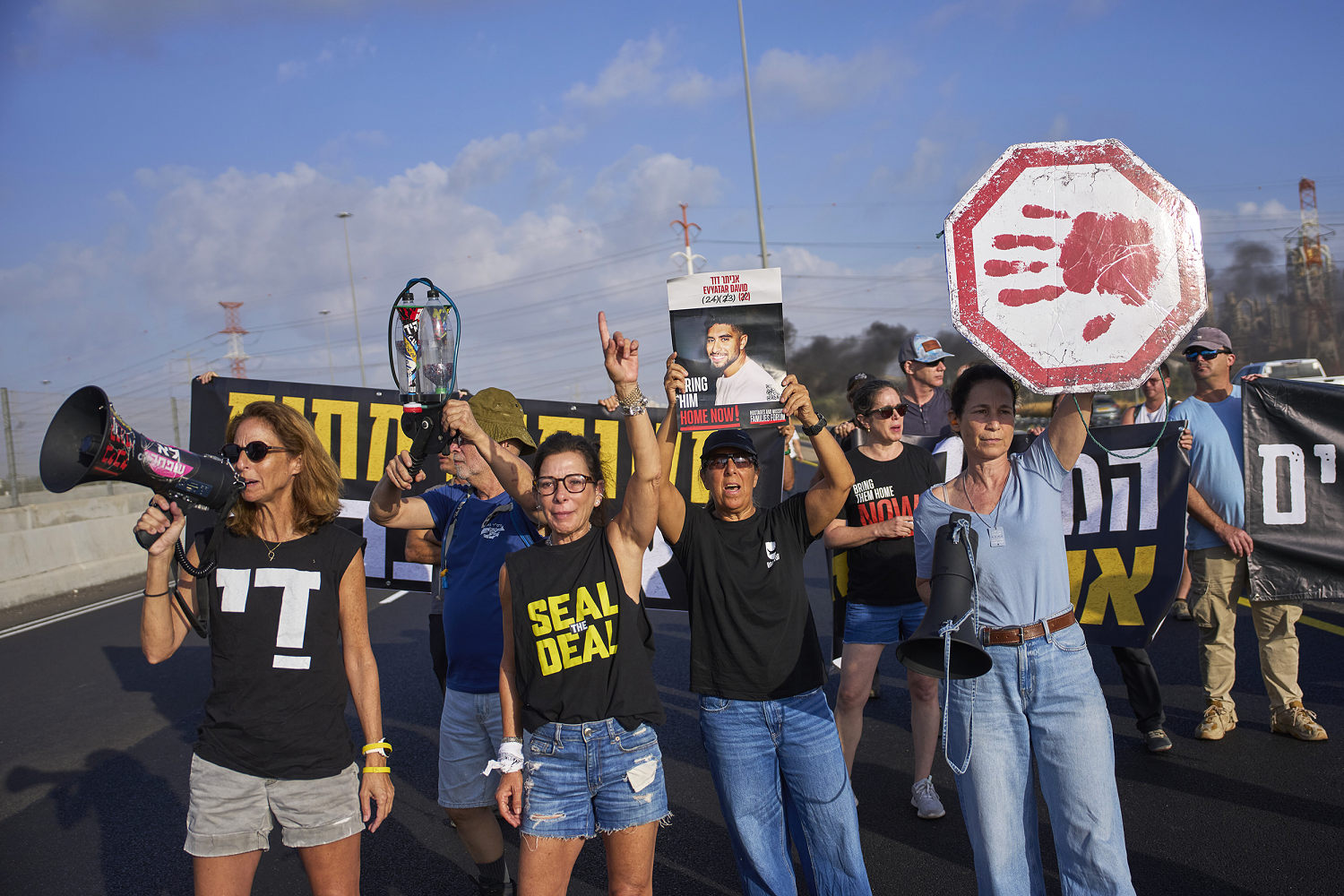
Jews around the world are preparing for the coming High Holy Days, from the traditionally joyful New Year celebrations of Rosh Hashanah and the more solemn Day of Atonement, Yom Kippur. This sacred period is marked by deep introspection: taking stock of our actions throughout the past year and committing ourselves to do better in the year ahead.
Notably, the High Holiday liturgy is written in the plural “we,” a reminder that though we act as individuals, we are inextricably bound together as one Jewish people. The deep bonds between Jews worldwide are why, here in North America, we so viscerally felt the tremendous pain of the Hamas attack on Oct. 7, 2023.
In its efforts to win this war, Israel is losing the larger battle.
They are why we see our own lives as bound up with the fate of the hostages languishing in Gaza and with the pain of their families. And it is this commitment to make the New Year better than the last that compels the Reform Jewish movement that I help lead in North America, and so many others in Israel and beyond, to raise our voices against the Israeli government’s plans to further expand the war.
The tragedy of Oct. 7 will live in the collective Jewish memory alongside horrors such as the destruction of the ancient Temples and the Holocaust. Hamas bears responsibility for this war, having mercilessly attacked Israel on Oct. 7. Through torture, murder, rape and kidnapping, Hamas sought to destroy Israel and eliminate the prospects for a peaceful future between Israelis and Palestinians, as well as between Israel and other regional Arab states.
But in its efforts to win this war, Israel is losing the larger battle. The Netanyahu government’s defense of Israel began justly, but it has become a quagmire.
Nearly two years of war has not brought about the return of the remaining hostages, and the daily violence of war continues to take the lives of innocent Gazans and has brought widespread hunger into Gaza. The Netanyahu government has also shared no clear plan for the day after hostilities end. And the war is increasingly used by extremist members of the government as a pretext for their long-held desires to rebuild settlements in Gaza.
Our concerns about the war’s expansion and the hunger gripping Gaza echo those of hundreds of thousands of Israelis who have taken to the streets, week after week, urging the Israeli government to choose a different path. They amplify the voices of the hostage families who beseech the government to bring their loved ones home. And they reflect the views of respected Israeli military, security and political leaders who have warned that expansion of the war will prove to be a military, political and humanitarian disaster.
Last week, an Israel Defense Forces attack on Gaza’s Nasser Hospital resulted in the deaths of 20 Palestinians, including journalists and medical providers. The office of Prime Minister Benjamin Netanyahu called it a “tragic mishap” that it “deeply regrets.” Such deaths of innocents will inevitably continue as the war expands.
Here in North America, the war is having direct repercussions, as well. It is causing painful divisions within families and within synagogues, and it has severely tested the nearly 80 years of bipartisan American political support that has helped Israel defend itself from hostile neighbors. All this comes at a time when North American Jews are experiencing a deadly spike in antisemitism.
Our concerns about the war’s expansion and the hunger gripping Gaza echo those of hundreds of thousands of Israelis who have taken to the streets, week after week, urging the Israeli government to choose a different path.
Attending a Jewish event should never come at the risk of a person’s life, or any violence. Yet today, Jews around the world are increasingly targeted. When Sarah Milgrim and Yaron Lischinsky were murdered as they walked out of a gathering on humanitarian diplomacy in the Middle East and North Africa, held at the Capital Jewish Museum in Washington, their assailant shouted, “Free Palestine.” Weeks later, in Boulder, Colorado, an attacker hurled incendiary devices at peaceful marchers demanding the release of hostages in Gaza — injuring 12, including an 88-year-old Holocaust survivor, one of whom has since died. Again, the attacker shouted, “Free Palestine.”
These assaults reveal a dangerous trend: antisemitic violence cloaked in the language of liberation. Murdering Jews is not resistance; it is terrorism. Such violence does nothing to advance Palestinian freedom — it only deepens fear, hatred and despair.
Those of us committed to a free Palestine — a Palestine free from Hamas’ tyranny and exploitation and free from the burdens of Israeli occupation — must insist that this struggle cannot and will not be waged through the targeting of Jews.
Ensuring Jewish safety must go hand in hand with bold political leadership that can deliver a future in which Palestinians and Israelis both live with dignity, freedom and peace.
On the cusp of a new Jewish year — the second in which Israelis taken on Oct. 7 languish in captivity — it is time to end this nightmare. The hostages must come home, humanitarian aid must flow into Gaza in amounts sufficient to meet the need, and planning must begin for “the day after.”
Only then can we truly begin to hope for the words expressed in the traditional High Holiday greeting: A Good and Sweet New Year.
Rabbi Rick Jacobs
Rabbi Rick Jacobs is president of the Union for Reform Judaism, the most powerful force in North American Jewish life. The URJ leads the largest and most diverse Jewish movement in North America, reaching more than 2 million people through 825 congregations, 14 overnight camps, the Reform teen youth Movement NFTY and the Religious Action Center in Washington, D.C. For more than 150 years, the URJ has been at the forefront in promoting an open, progressive Judaism.
-
Uncategorized10 months ago
Bob Good to step down as Freedom Caucus chair this week
-

 The Josh Fourrier Show10 months ago
The Josh Fourrier Show10 months agoDOOMSDAY: Trump won, now what?
-

 Politics10 months ago
Politics10 months agoWhat 7 political experts will be watching at Tuesday’s debate
-

 Politics6 months ago
Politics6 months agoFormer ‘Squad’ members launching ‘Bowman and Bush’ YouTube show
-

 Politics10 months ago
Politics10 months agoHow Republicans could foil Harris’ Supreme Court plans if she’s elected
-

 The Dictatorship6 months ago
The Dictatorship6 months agoPete Hegseth’s tenure at the Pentagon goes from bad to worse
-
Economy10 months ago
Fed moves to protect weakening job market with bold rate cut
-

 Politics10 months ago
Politics10 months agoRFK Jr.’s bid to take himself off swing state ballots may scramble mail-in voting







